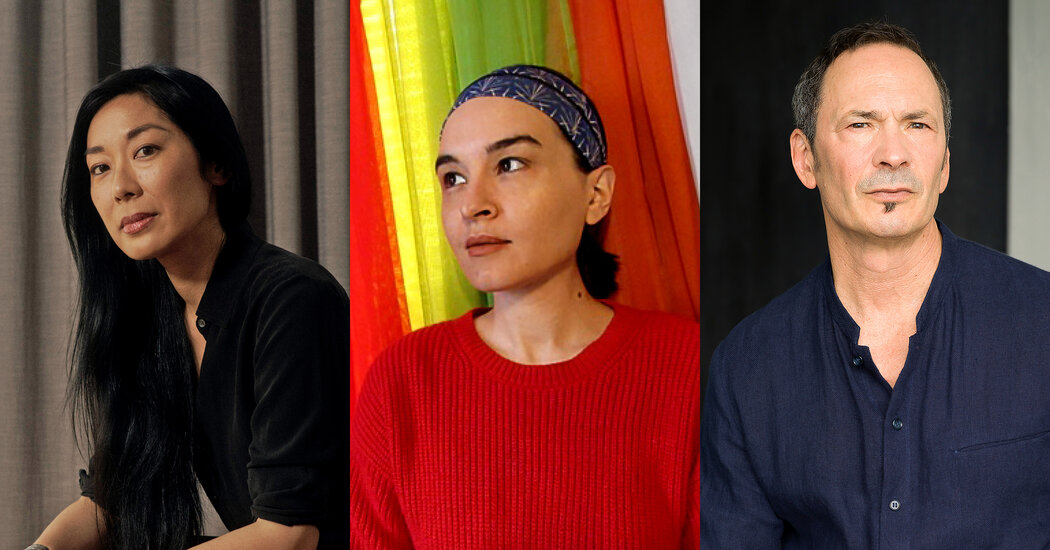
The 10 nonfiction contenders include one author longlisted in 2019, Hanif Abdurraqib, this time for his book “A Little Devil in America,” as well as two books that examine the legacy of slavery in the United States. Clint Smith visited nine sites connected to slavery for his book “How the Word Is Passed,” while Tiya Miles, in her book “All That She Carried,” explores the history of a family through a cotton sack, embroidered with a list of mementos given from mother to daughter as they were about to be sold apart.
In the poetry category, all but one are first-time nominees, the exception being Forrest Gander for “Twice Alive.” Several of the longlisted collections deal with loss, and two explore what it means to feel like a foreigner in the United States. They are “The Wild Fox of Yemen,” by Threa Almontaser, who shifts between family histories of Yemen and stories of America after Sept. 11, and “Ghost Letters,” in which Baba Badji probes what it means to be Senegalese, Black and in the United States.
On the longlist for young people’s literature, two coming-of-age stories look at issues of gender and sexuality. Malinda Lo’s “Last Night at the Telegraph Club” centers on a 17-year-old in San Francisco’s Chinatown during the Red Scare as she falls in love for the first time. In Kyle Lukoff’s “Too Bright to See,” readers follow a transgender child named Bug during the summer before middle school, which a reviewer for The New York Times described as the “story of what it’s like to realize the gender you were assigned at birth is not the one you actually are.”
The nominees for translated literature include books originally published in Korean, Russian, Arabic, Spanish, Chinese, French and German. Two of them focus on political violence, including “Peach Blossom Paradise,” written by Ge Fei and translated from Chinese by Canaan Morse, which follows a young woman during the Hundred Days Reform, and “The Twilight Zone,” by Nona Fernández and translated from Spanish by Natasha Wimmer, which reflects on Pinochet’s regime in Chile.
Two others, “When We Cease to Understand the World” by Benjamín Labatut and translated by Adrian Nathan West, and “In Memory of Memory” by Maria Stepanova and translated by Sasha Dugdale, were finalists for this year’s International Booker Prize.




